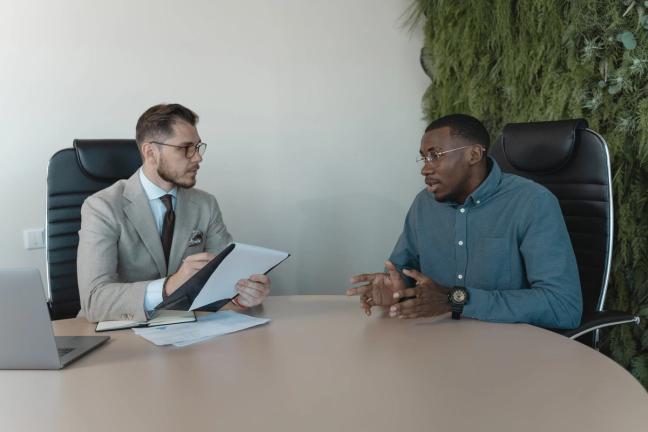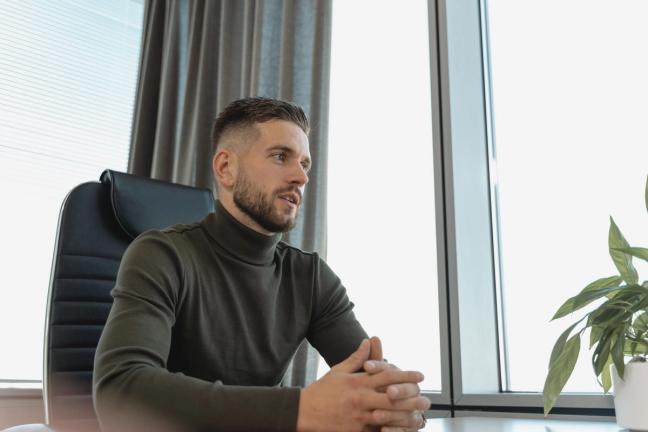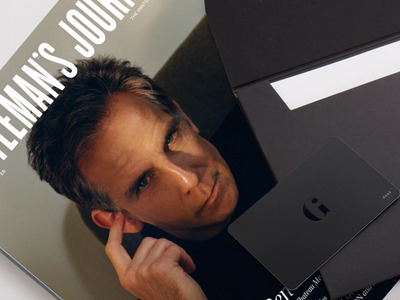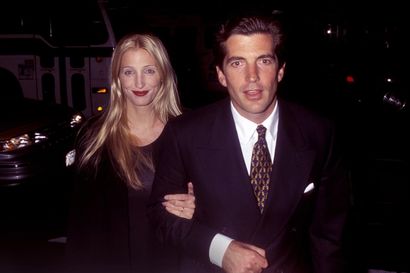When it comes to interview advice, there are (literal) books written on the subject. You can find tips on perfecting your handshake, guidance on body language, coaching on vocal clarity and enough inspirational Pinterest mantras to see you through any number of intimidating interview scenarios.
But sometimes, when you’ve got a challenging job interview approaching — and when it’s a job you really, really want — all you need is an understanding of how to nail those truly challenging questions that will almost certainly crop up, in some manifestation or another. A firm handshake, straight back and crystal clear enunciation are vital, certainly; but they’ll only get you so far. Having excellent, unforgettable, winning answers in your back pocket is the most valuable tool in your interview arsenal; and so we turned to Emily Aldrich, Managing Director of recruitment consultancy Aldrich & Co, to learn exactly which questions are likely to come up: and just how to nail them.
#1 Tell me about yourself?

It may not always be phrased as a question, in the typical questioning sense; but it’s a question nonetheless, and a vitally important one.
“In a nutshell, this is an opportunity to give an overview,” Aldrich explains. “It needs to be a summary, and not necessarily something that’s [already] on your CV. Think clearly about the story you want them to hear, and perhaps some hooks” — by which Aldrich means those crucial attributes that’ll make you stand out.
“Hooks are what people remember you for,” she explains. “The person who trekked across Africa teaching people how to fix bicycles in their gap year: [that person] shows independence, [that] they’re happy to rough it, [that they’ve got] kindness.”
#2 Tell me what drew you to apply for this position?

“This is an excellent opportunity to showcase why you’re suitable,” Aldrich points out. “[Here, you can] drop in relevant skills and experience; but do answer the question.”
Therein lies why this is a particularly challenging interview question. It’s a chance for you to demonstrate exactly what makes you perfect for the role; but there’s a danger that you might dive right off piste, and end up listing your (many, we’re sure) strengths and admirable qualities.
Don’t fall into that particular interview trap. As Aldrich says, drop in the skills and experience wherever possible; but also wherever relevant. Don’t go off on a tangent; make sure you remember the question that’s been asked, and answer accordingly. There’ll be plenty more opportunities for you to shine.
#3 Tell me what inspires you outside of work?

“This will give you a great opportunity for your interviewer to get to know you, and whether you’re bringing more to the party than the skill set required,” Aldrich explains. “Your experience, achievements and interests might spark a conversation away from your CV; but keep it brief and contained.”
Again: that’s the key. This question is your opportunity to further set yourself apart from other candidates; to show that you’re the uniquely fascinating, thoroughly original gentleman we have no doubt you are. But brevity is key, where this particular question is concerned. Telling the interviewers that you like to run ultra-marathons in your spare time is both memorable and admirable; but unless the job actually involves the regular completion of ultra-marathons, it will only carry so much relevance. Drop it in, by all means; but don’t let it dominate the conversation.
#4 How are you looking to grow your career?

“This could be a catastrophe, depending on whether you [and the interviewers] have aligned goals; so think carefully before talking about your dream of building an empire, or your love of travel,” Aldrich maintains.
This is where your pre-interview research is going to really come in handy. If you’ve got a clear idea of what your potential manager’s goals would be for you (your recruiter should be able to help with that), you’ll be able to demonstrate here that you’re very much on the same page.
It (hopefully) goes without saying that you should never lie in an interview; don’t tell the panel what you think they want to hear because you read it on the company website rather than because it’s how you actually feel. But it’s always worth thinking carefully about your response; if you and your interview are aligned, that’s something you should know about before this question comes up, so you can answer accordingly.
#5 Do you have any questions?

You might be surprised to see this particular question appearing — in a somewhat meta way — in this list of questions, above the more common ‘what’s your biggest weakness?’ (Aldrich does touch on this one, together with ‘what skills do you need to build on?’, pointing out that your answer should show that you’re self-aware, and that the panel will “always want to know what your strengths are”); but it’s of paramount importance.
When asked whether you have any questions: “never say no!,” emphasises Aldrich. “This is asked at the end of the interview, as an opportunity to clarify anything that was mentioned. Asking a question at the end of the interview shows that you were paying attention, and that you’ve thought about the role. Asking about the salary or benefits is not enough.”
So essentially, gents; the best way to prepare for the most common challenging interview questions is to have some thoughtful, interested questions of your own up your sleeve. Now go forth, and nail that interview.
Wondering what to wear to that all-important interview? Well, Daniel Craig’s Bond puts his best foot forward with Crockett & Jones…
Become a Gentleman’s Journal member. Find out more here.

Become a Gentleman’s Journal Member?
Like the Gentleman’s Journal? Why not join the Clubhouse, a special kind of private club where members receive offers and experiences from hand-picked, premium brands. You will also receive invites to exclusive events, the quarterly print magazine delivered directly to your door and your own membership card.


